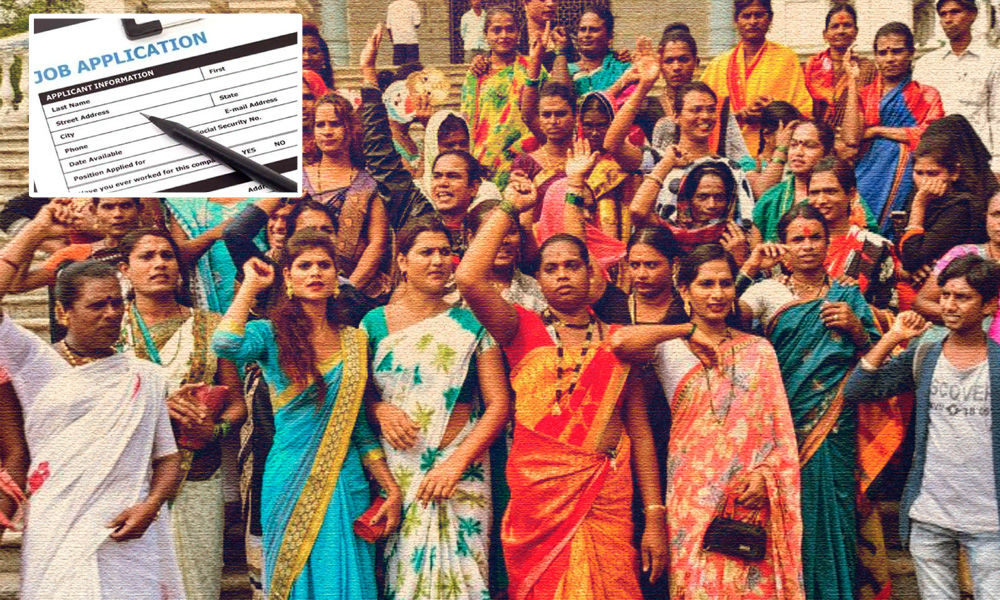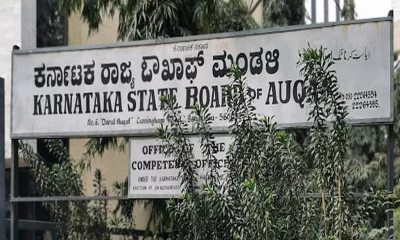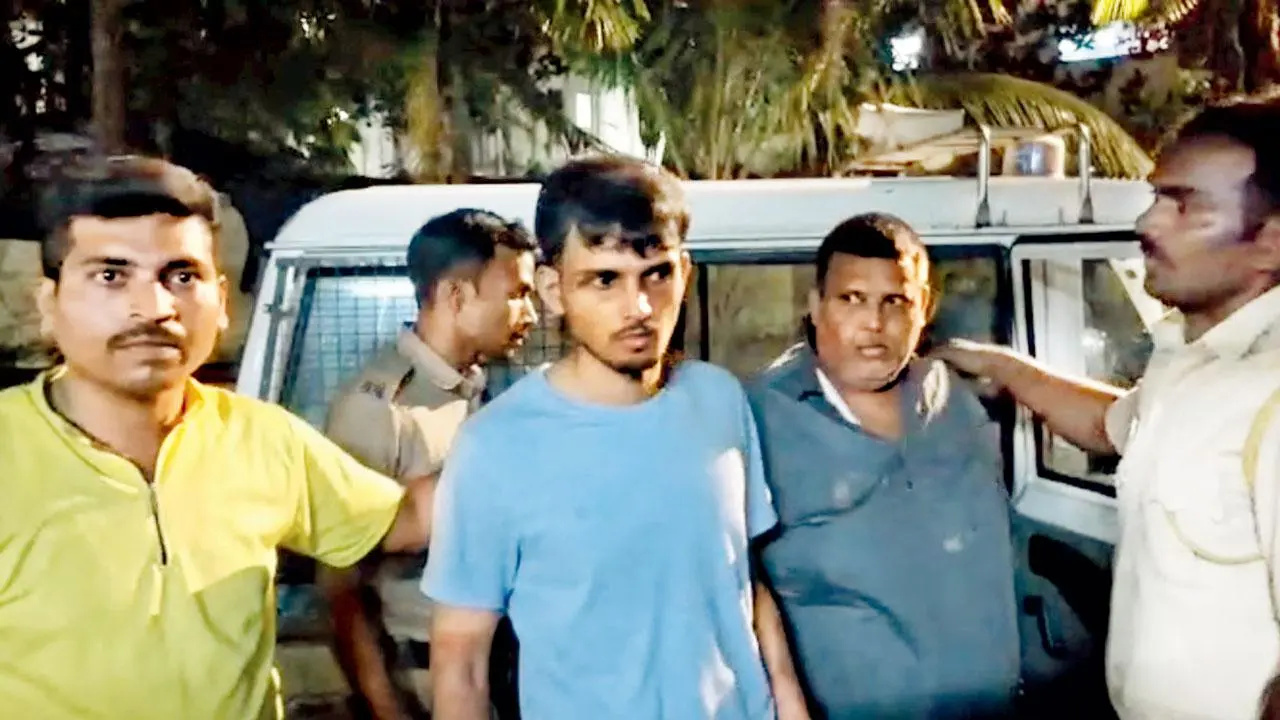Hemant Singh – Mumbai Uncensored, 28th February 2022
The state government of Karnataka has reserved 1% of posts horizontally for transgender persons in the Government sector. On Wednesday, Karnataka became India’s first state to offer transgender government jobs.
Chief Justice Abhay Shreeniwas Oka and Suraj Govindaraj of the Karnataka high court have been notified that the state government has amended the Karnataka Civil Services (General Recruitment) Rules, 1977 to provide a 1% horizontal reservation for the transgender community.
A draft notice published on May 13 proposed an amendment to Rule 9 for this purpose. Proposed amendments to Rule 9 Annex (1D) were included to provide 1% of vacancies filled by the State Government in any department or position among transgender applicants in each of the categories General, Scheduled Caste, Scheduled Tribe, and in each of the other backward classes.
In the meantime, the state government informed the high court on Wednesday that it had not received any objections to the draft notification with regards to Rule 9. It amended the rule on July 6 and inserted sub-rule (1D).
The new classification has the following content:
“Notwithstanding anything contained in the rules of recruitment specially made in respect of any service or post, in all direct recruitment one percentage of vacancies set apart for that method in each of the categories of General Merit, Scheduled Castes, Scheduled Tribes and in each of the categories among Other Backward Classes shall, subject to any general instructions that may be issued by the Government regarding the manner of appointment, be filled from among transgender candidates:
Provided that, every Appointing Authority shall provide a separate column of “Others” along with male gender and female gender in the application for recruitment to any category of Group-A, B, C, or D posts for the convenience of transgender persons. The Recruitment Authority or the Appointing Authority shall not discriminate against a transgender person while making the selection of an appointment to any category of post.
Provided further that, if a sufficient number of eligible transgender persons are not available, to the extent of one percent, the unfilled vacancies shall be filled by male or female candidates, as the case may be, belonging to the same category.
Explanation: For this sub-rule, a Transgender Person shall have the same meaning as defined in Clause (k) of Section 2 of the Transgender Persons (Protection of Rights) Act, 2019 (Central Act 40 of 2019)”.
The intervention of the High Court
The state government amended its recruitment rules after being sued over the exclusion of a separate category for transgender persons on an equal footing with men and women. The state government has sought to fill 2,672 positions – including 2,420 vacancies for special reserve police and 252 musician or bandsmen positions, notices calling for these positions listing age, weight, and other specifications are for men and women only, with absolutely no regard for transgender people.
Jeeva which is a charitable trust filed an interlocutory application (IA) challenging this exclusion In Sangama v State of Karnataka, It also asked for reservations in posts like bandsmen and constable posts for the transgender community. Jiva’s work in creating a policy for the equal participation of LGBTQ people in society, is commendable, Creating sustainable livelihoods and achieving quality of life, pride, and dignity for transgender communities in Bangalore and other parts of Karnataka
Initially, the state government proposed considering transgender people in one of the OBC categories, after receiving advice from the Karnataka State Commission on backward classes. However, Jeeva requested reservations for transgender people horizontally, rather than in the OBC’s catalogue, because they were discriminated against because of their gender. Jeeva argues that transgender reservations should be similar to reservations for women or people with disabilities, who can then be offered in vertical reservations categories for OBC and SC/ST.
Jeeva told the Supreme Court that if the state government’s proposal to include transgender people in the OBC category is accepted, it would not allow similar people in the SC and ST communities to apply for reservation rights. Conversely, if a transgender person already has the benefit of reserving a room in the OBC category, it will not be possible to have the additional benefit of the reservations due to gender, as indicated. Furthermore, competition in OBCs will reduce the chances of transgender among them getting very thin positions, Jeeva argued at the Supreme Court
Jeeva’s claim was inspired by the Supreme Court’s decision at NALSA v Union of India (2014), for transgender rights, it was a turning point. In this case, the court ruled that the right to life under article 21 of the constitution includes the right to self-determine their own gender identity and that no one should be discriminated against based on their gender identity, be it male or female. or transgender. . The Supreme Court ordered the Center and state governments to integrate the transgender community into society by treating them as socially and educationally backward citizens, and extended all kinds of reservations in the case of admission to educational institutions and public appointments.
The charitable trust also quoted the Supreme Court’s ruling in Indra Sawhney v Union of India (1992), in which the court held that reservations could be vertical or horizontal. Under Article 16(4) in favour of SC, ST, and OBCs are the ones we call vertical reservation, which is a social reservation, while a special reserve, which overlaps with a vertical reserve, is known as horizontal reservations. For instance, these horizontal reservations are granted to impaired people (under Article 16)(1). Under the horizontal reservation, different groups such as veterans, displaced persons, women under Article 15(3) also benefit. Horizontal presets are nested and overlapping vertical reservations, with horizontal catalogue reservations offered within the existing vertical presets catalogue
As horizontal reservations overlap with vertical reservations, this allows reservations not only based on identity, i.e. gender, but also allows reservation when a person has more than one important identity, such as transgender status and ST, ST, or OBC.
The state government of Tamil Nadu included transgender people within a category known as Most Backward Classes (MBC) which is similar to that of the OBC category in Karnataka. The Madras high court directed that instead of including transgender persons within the MBC, horizontal reservations in each vertical category be provided instead of MBC.
Jeeva argued before the high court that the Supreme Court held that, although article 16(4) was adequate regarding the vertical reservation for backward citizens, it was incomplete in the scope of the reservation under the Constitution, Article 16(1) which says “equality of opportunity for all citizens in matters relating to employment or appointment to any office under the State” grants horizontal reservations for other classes of people. Those deemed by the State to be eligible for reservation under Article16(1) shall be niched in the relevant category or quota as defined under Article16(4) forming an intersectional grid.
What Jeeva got vs what it wanted.
Jeeva, in the application, asked for guidance that would include all privileges
and easing such as physical requirements, cut-off marks, age restrictions, and transgender assessments. Privileges and easing that widows and impoverished military veterans get will be extended to transgender people said the Madras high court. “Only if all these relaxations are provided to transgender persons, will they be provided equal opportunity in public employment,” Jeeva said to the high court
Jeeva has also called for reservations and concessions for transgender people in the public sector of education, at both lower and higher levels of education, Reservations and concessions in housing programs, including housing placement and allocation of Plot or concessional land, occupations, businesses, etc.
Jeeva’s AI has also mentioned reservations about transgender people in poverty alleviation and developmental programs, like reserved gram panchayats seats, Urban local bodies, including municipalities, town councils, and municipal corporations.



 Health3 weeks ago
Health3 weeks ago


 Special Editions2 months ago
Special Editions2 months ago


 Special Editions1 day ago
Special Editions1 day ago


 Special Editions21 hours ago
Special Editions21 hours ago


 Special Editions1 day ago
Special Editions1 day ago














